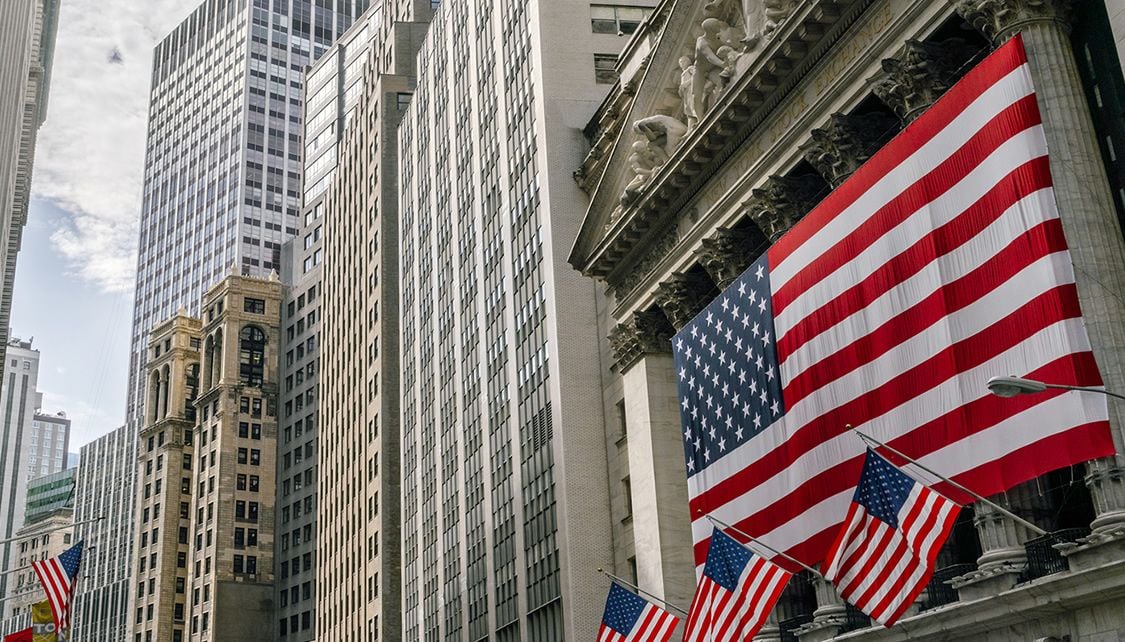Dollar Aims at Low-yielders as Trade Talks Set to Survive Fallout Over Hong Kong Bill
- Written by: James Skinner

Image © Adobe Images
- USD and FX markets trade with risk-off tone at Thanksgiving.
- But trade talks seen surviving fallout over Hong Kong rights bill.
- China also appears to eye reforms inc on intellectual property.
- Charts point to USD advance on low yielders says Julius Baer.
-The EUR, CHF, JPY are all in the firing line of USD on the charts.
The Dollar was trading with an upward bias on the Thanksgiving holiday Thursday but is set to advance further upon low-yielding rivals over the coming weeks, according to technical analysis from Swiss private bank Julius Baer, with the negative interest rate currencies right in the greenback's firing line.
Financial markets were blighted by low volumes amid the annual Thanksgiving holiday in the U.S. and Canada but a risk-off tone was clear in exchange rates during the noon hours, with the Dollar lower against its Japanese, Swiss and European rivals but higher against its British and antipodean rivals. However, price action suggested from the get-go Thursday that investors were uneasy about the latest developments in the U.S.-China trade story.
"The USD is trading a bit higher after a solid performance on Wednesday. It looks as if the White House's decision to sign the HKHRDA into law has perturbed risk assets moderately and given a decent boost to USDRMB. The GBP has been trading with a reasonably solid bid following the publication of YouGov's latest MRP poll of voting intentions," says Stephen Gallo, European head of FX strategy at BMO Capital Markets, in a note to clients Thursday.
Currency markets appeared to be breathing a sigh of relief during the noon session in response to signs the U.S.-China trade talks will survive any diplomatic fallout over President Donald Trump's Wednesday decision to sign the Hong Kong Human Rights and Democracy Act. The act threatens Hong Kong's special trade status as well as sanctions for some Chinese officials if Hong Kong's independence is undermined.

Above: Dollar Index shown at daily intervals.
Trump signed the Hong Kong bill into law Wednesday just as investors were celebrating mutual claims of progress in talks aimed at firming up the 'phase one deal' that was said to have been agreed on October 11, although there's been suggestions that he could have a get-out from the act already up his sleave. The Wall Street Journal suggested Thursday that Trump could use his executive authority to set U.S. foreign policy to circumvent parts of the controversial bill that has solid support in Congress.
"Certain provisions of the Act would interfere with the exercise of the President’s constitutional authority to state the foreign policy of the United States. My Administration will treat each of the provisions of the Act consistently with the President’s constitutional authorities with respect to foreign relations," President Trump said in a statement late on Wednesday.
The decision drew immediate condemnation from Beijing as well as threats of retaliation, which the Global Times has speculated could see some U.S. lawmakers and diplomats, including Secretary of State Mike Pompeo, prevented from travelling to China.
A Commerce Ministry spokesperson told CNBC News at a press conference on Thursday the "relevant news has been reported", in response to a question about the trade talks, suggesting China might view the Hong Kong subject as a separate issue to the trade talks.

Above: Pound-to-Dollar rate shown at daily intervals.
Meanwhile, the People's Daily, a part of the state-ran Xinhua News Agency, published the "guiding opinions of the Central Committee of the Communist Party of China on promoting...development of trade" Thursday in which trade and economic reform plans were confirmed. Included among the 'opinions' are suggestions of changes to intellectual property protections for foreign companies operating in China, a key White House demand in the trade talks.
Premier Li Keqiang appears to have given similar instructions to the State Council Thursday. Both sides already said Wednesday they're making progress on a 'phase one deal', with China's Commerce Ministry noting they “discussed how to resolve each other’s core concerns and reached consensus on how to resolve related issues.” The latter had lifted the Dollar on Wednesday.
"These US/China headlines have not caused a whole lot of volatility in the stock, commodity or FX space today because there are simply less traders around than usual. The US markets are closed today for the Thanksgiving holiday and while tomorrow will feature a shortened trading session for the US stock and bond markets, many of these traders typically stretch the holiday into a long weekend," says Eric Bregar, head of FX strategy at Exchange Bank of Canada.

Above: USD/CHF rate shown at daily intervals.
In short, it doesn't appear as if the Hong Kong spat is preventing either of the world's two largest economies from working toward a deal to end the trade war between them, although price action Thursday was being taken largely with a pinch of salt by some analysts because of the Thanksgiving holiday in the U.S., which has sidelined large numbers of traders and big portfolios.
However, when U.S. investors and traders do return to their desks they'll be getting back in the saddle with the Dollar eyeing a move toward its all-time high against a basket of currencies that each have negative interest rates in common. The Euro, Swiss Franc and Japanese Yen will be right in the greenback's firing line over the coming weeks and months, according to technical analysis from Julius Baer.
"Combining the negatively yielding currencies and comparing them to the US dollar, we see that an inverted head-and-shoulders pattern is unfolding. As long-term momentum is bottoming, one should expect further gains in the US dollar and possibly a rise to the alltime highs from the year 2002," says Alexis Chassagnade, a technical analysis at the Swiss private bank.

Above: USD/JPY rate alongside U.S. S&P 500 stock market index.
Chassagnade says the Euro-to-Dollar rate will remain locked in a long-term technical downtrend so long as the 1.12 resistance level holds and that momentum favours the downside.
The Euro-Dollar rate makes up more than one half the Dollar index so is a powerful influence on the broad measure of the greenback, while the Euro itself is increasingly viewed by analysts as a ‘funding currency’. That funding currency status leaves the Euro at risk of losses when markets are upbeat because investors tend to borrow the cheap Euro and sell it in order to earn higher rates of interest by holding riskier emerging market currencies.
Meanwhile, USD/JPY momentum gauges have put in “long-term bottom” according to Chassagnade, who favours buying the exchange rate so long as it remains above 105. Likewise for the USD/CHF rate, which is tipped to remain biased to the upside so long as the market remains above 0.9850.
Both of these exchange rates tend to rise when investors risk appetites are robust but fall when risk aversion rises, which means progress in the U.S.-China talks should be good for them.

Above: Euro-to-Dollar rate shown at daily intervals.
Time to move your money? The Global Reach Best Exchange Rate Guarantee offers you competitive rates and maximises your currency transfer. Global Reach can offer great rates, tailored transfers, and market insight to help you choose the best times for you to trade. Speaking to a currency specialist helps you to capitalise on positive market shifts and make the most of your money. Find out more here.
* Advertisement





